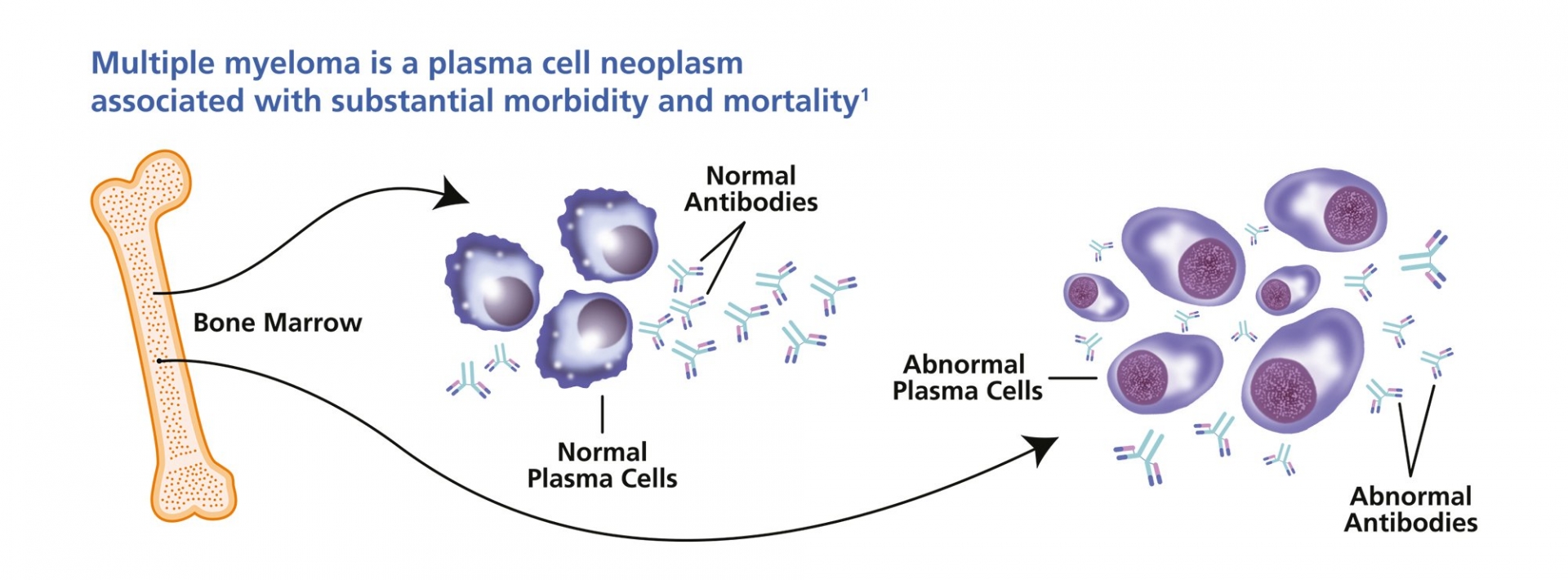What is Gonorrhea: Symptoms and Best Treatment
| Table of Content |
What is gonorrhea?
A person can transmit it during any kind of sexual contact. With an early diagnosis, effective treatment is usually available. However, without treatment, gonorrhea can result in long-term complications.
Gonorrhea is a sexually transmitted disease (STD). It’s caused by infection with the bacterium Neisseria gonorrhoeae. It tends to infect warm, moist areas of the body, including the:
-
urethra (the tube that drains urine from the urinary bladder)
-
eyes
-
throat
-
vagina
-
anus
-
female reproductive tract (the fallopian tubes, cervix, and uterus)
Gonorrhea passes from person to person through unprotected oral, anal, or vaginal sex. People with numerous sexual partners or those who don’t use a condom are at greatest risk of infection. The best protection against infection are abstinence, monogamy (sex with only one partner), and proper condom usage. Behaviors that make a person more likely to engage in unprotected sex also increase the likelihood of infection. These behaviors include alcohol abuse and illegal drug abuse, particularly intravenous drug use.
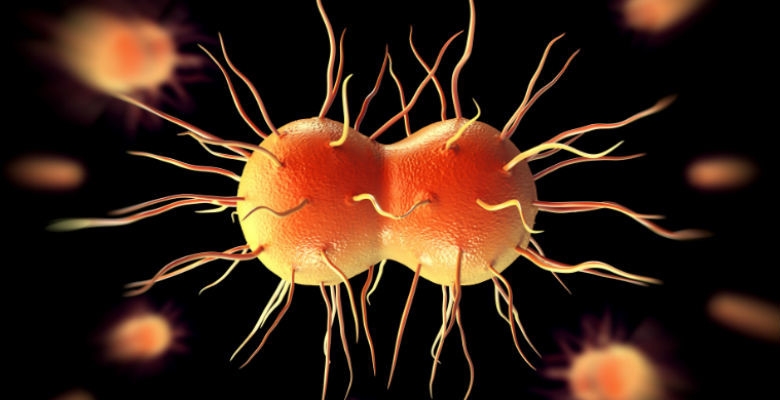 |
| Gonorrhea bacteria. Photo: Avert |
Gonorrhea's Symptoms in Men
Men may not develop noticeable symptoms for several weeks. Some men may never develop symptoms.
Typically, the infection begins to show symptoms a week after its transmission. The first noticeable symptom in men is often a burning or painful sensation during urination. As it progresses, other symptoms may include:
-
greater frequency or urgency of urination
-
a pus-like discharge (or drip) from the penis (white, yellow, beige, or greenish)
-
swelling or redness at the opening of the penis
-
swelling or pain in the testicles
-
a persistent sore throat
The infection will stay in the body for a few weeks after the symptoms have been treated. In rare instances, gonorrhea can continue to cause damage to the body, specifically the urethra and testicles. Pain may also spread to the rectum.
Gonorrhea's Symptoms in Women
Many women don’t develop any overt symptoms of gonorrhea. When women do develop symptoms, they tend to be mild or similar to other infections, making them more difficult to identify. Gonorrhea infections can appear much like common vaginal yeast or bacterial infections.
Symptoms include:
-
discharge from the vagina (watery, creamy, or slightly green)
-
pain or burning sensation while urinating
-
the need to urinate more frequently
-
heavier periods or spotting
-
sore throat
-
pain upon engaging in sexual intercourse
-
sharp pain in the lower abdomen
-
fever
Best Treatment of Gonorrhea
According to Medical News Today, If the test result is positive for gonorrhea infection, the inpidual and potentially any sexual partners will need to undergo treatment.
Treatment can stop the infection from progressing, but it cannot repair any permanent damage that has already occurred. For this reason, it is important to seek treatment as soon as possible.
Treatment typically involves antibiotics.
The Centers for Disease Control and Prevention (CDC) recommend a single dose of 250 milligrams of intramuscular ceftriaxone (Rocephin) and 1 gram of oral azithromycin (Zithromax). They urge people to take all of the medication that a doctor prescribes and to avoid sharing it with anyone else.
However, Neisseria gonorrhoeae, the bacteria that cause gonorrhea, have developed resistance to nearly all of the antibiotics that doctors have traditionally used to treat it.
This resistance is making gonorrhea more and more difficult to treat. If a person does not notice any improvement in their symptoms after several days of treatment, they should return to their healthcare provider. They may need further testing to determine whether the treatment is working.
A person should also attend any follow-up appointments and avoid having sex until a healthcare provider says that it is safe to do so.
If gonorrhea occurs during pregnancy, it is essential to let the healthcare team know. It is possible to pass the infection on to a baby during delivery, so the newborn will usually need antibiotics straight after birth.
Some newborns develop conjunctivitis after they are born. There are various possible causes, one of which is gonorrhea infection. Symptoms usually appear 2–4 days after birth and include red eyes, thick pus in the eyes, and swollen eyelids.
Anyone who notices these symptoms in a newborn should seek medical care at once as they can also be a sign of a more serious condition, such as meningitis or bacteremia.
Gonorrhea and HIV
| As reported from Avert, having an STI, including gonorrhea, increases your risk of getting HIV. If you are living with HIV and also have gonorrhea, your viral load is likely to increase. This will make you more likely to pass on HIV if you have sex without a condom, even if you are on treatment. |
However, if you have an undetectable viral load (because you’re taking antiretrovirals) there is no evidence that gonorrhea makes you more likely to pass on HIV. If you are taking antiretrovirals it is important to discuss with your doctor how treatment for gonorrhea may interact with your HIV drugs. If you are worried about HIV infection, find out everything you need to know in our HIV Transmission and Prevention section.
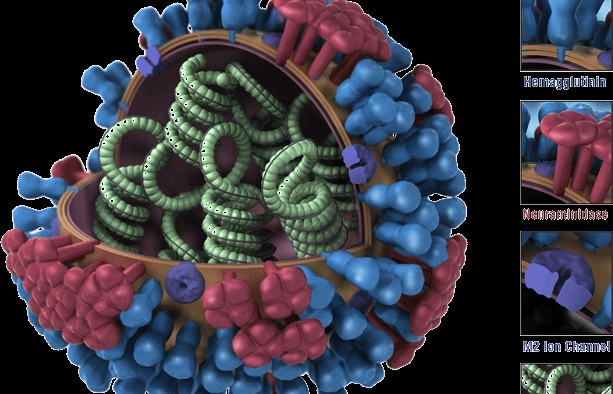 | Influenza A: Symptoms and best treatment Influenza A is a common type of flu virus that can cause a cough, body aches, and a sore throat. Here, we discuss its symptoms ... |
 | Influenza B: Symptoms and best treatment Influenza, or the flu, is a respiratory illness that is very common during the winter months. It affects the lungs, nose, and throat, causing symptoms ... |
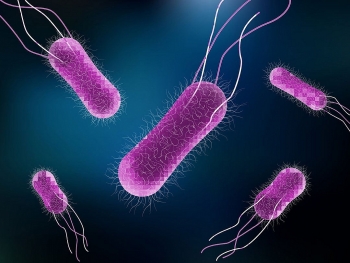 | Salmonella (Salmonellosis): Causes, symptoms and treatment Salmonella infection is food-related illness that may be resulted by several causes, mainly by bateria in food. People should aware of the causes, symptoms, treatment ... |
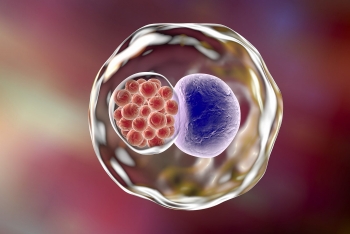 | What is Chlamydia disease? Chlamydia is a sexually transmitted disease caused by Chlamydia trachomatis bacteria. Chlamydia bacterial infections are more common among sexually active teens and young adults. Chlamydia ... |
 | 10 Treatments of Cloudy Urine At Home Cloudy urine is inevitable in those who contract cystitis. Here are certain home remedies you can try to ease the pain and inflammation. |



